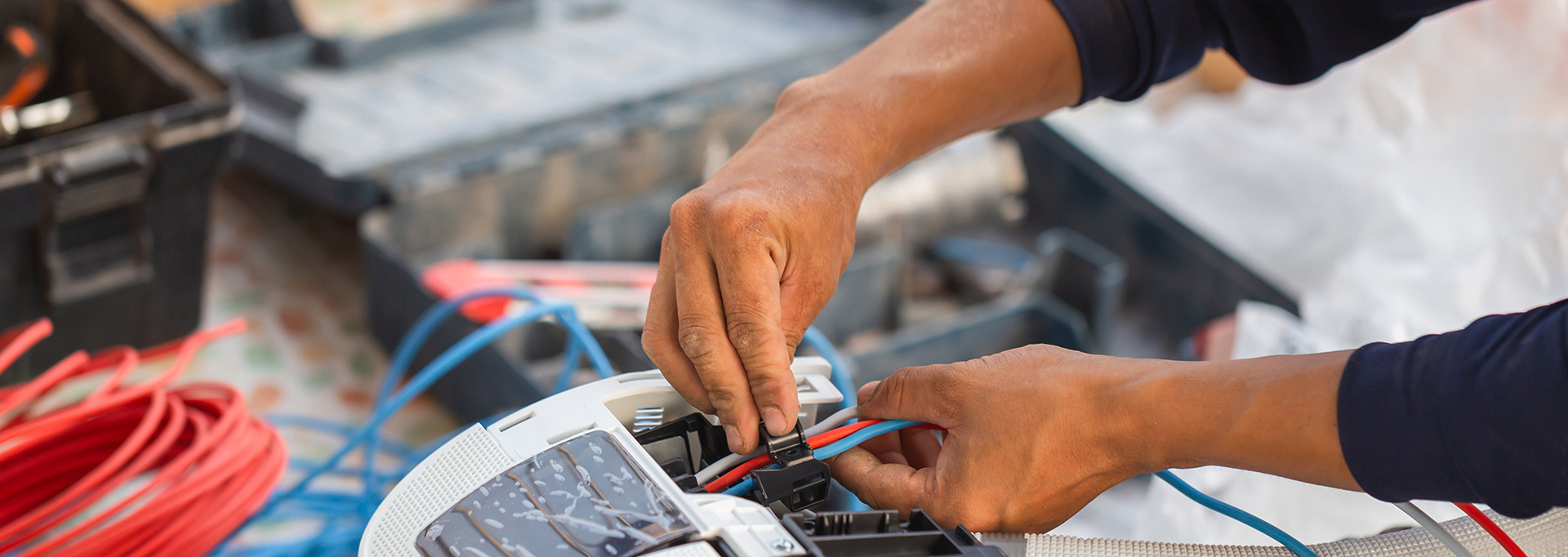The air quality inside your building plays a major role in your employees' overall well-being and productivity. Indoor air quality (IAQ) affects how people feel, think, and work, making it a critical component of any commercial workspace. Studies show that poor air quality can lead to health issues, reduced focus, and lower productivity, while clean, fresh air can improve employee morale and performance. The Role of HVAC Systems in Maintaining Indoor Air Quality The HVAC system in a commercial building does more than just regulate temperature; it’s also responsible for filtering, ventilating, and circulating the air within the building. Here’s how HVAC systems play a vital role in IAQ: Ventilation: Proper ventilation is essential for bringing fresh outdoor air into the building and removing stale indoor air. HVAC systems regulate the amount of outdoor air that enters, diluting pollutants, odors, and CO2 levels, which helps maintain a healthy indoor environment. Filtration: High-quality air filters in an HVAC system capture dust, allergens, and other airborne particles, keeping them out of the indoor environment. Advanced filters, such as HEPA or MERV-rated filters, are especially effective in reducing pollutants, contributing to cleaner air and healthier conditions for occupants. Humidity Control: HVAC systems regulate humidity levels, preventing air that’s too dry or humid. High humidity can promote mold growth, while low humidity can cause respiratory irritation. HVAC systems support comfortable and safe air quality by keeping humidity levels in the ideal range (typically 30-50%). Air Purification: Many modern HVAC systems include air purifiers or UV lights that help neutralize bacteria, viruses, and other harmful microorganisms, further enhancing the building's air quality. Health Benefits of Good Air Quality in the Workplace Maintaining good indoor air quality brings several health benefits that directly affect employees’ productivity and well-being: Reduced Respiratory Issues: Clean air helps to prevent respiratory problems caused by dust, allergens, and pollutants. When the air quality is high, employees are less likely to experience symptoms like coughing, sneezing, or difficulty breathing, reducing sick days and health-related interruptions. Decreased Risk of Illness: Many air contaminants, such as viruses, bacteria, and mold spores, can lead to illnesses. Good IAQ minimizes these pathogens in the air, reducing the spread of colds, flu, and other infections within the workplace, leading to fewer absences. Enhanced Mental Clarity and Focus: Fresh air improves cognitive function. Poor air quality, particularly high levels of CO2, can cause mental fog, fatigue, and decreased concentration. When IAQ is optimized, employees are more alert, focused, and productive. Improved Mood and Morale: Indoor air quality also impacts mood and morale. Poor air can make employees feel sluggish or irritable, while clean, well-circulated air creates a more pleasant working environment, leading to higher job satisfaction and morale. How to Improve Indoor Air Quality with HVAC Solutions Enhancing IAQ doesn’t have to be complicated or expensive. By implementing the following HVAC solutions, you can create a healthier and more productive workplace environment: Upgrade to High-Efficiency Filters Consider using high-efficiency filters with a higher MERV rating. These filters are more effective at capturing small particles like dust, allergens, and even bacteria. HEPA filters, in particular, can capture over 99% of particles, making them an excellent choice for improving IAQ. Install Air Purifiers and UV Lights Air purifiers integrated into the HVAC system help reduce contaminants in the air. UV lights installed within the system can kill bacteria and viruses, ensuring the air circulated throughout the building is as clean as possible. Increase Ventilation Rates Ensure that your HVAC system allows an adequate exchange of fresh outdoor air. Many modern systems come with energy recovery ventilation (ERV) systems, ideal for bringing in outdoor air without wasting energy. This helps to dilute indoor pollutants and maintain healthy oxygen and CO2 levels. Maintain Optimal Humidity Levels Invest in a humidity control system that keeps indoor humidity between 30-50%, preventing issues associated with both high and low humidity. Adding a dehumidifier in humid climates or a humidifier in dry climates can help maintain balance, reducing the risk of mold growth and respiratory discomfort. Schedule Regular HVAC Maintenance Routine maintenance is essential for keeping HVAC systems clean and functional. Regularly replacing filters, cleaning ductwork, and inspecting components ensures that your system operates efficiently and effectively filters out pollutants. A well-maintained system provides better airflow and a steady supply of fresh air, enhancing IAQ. Use Demand-Controlled Ventilation Demand-controlled ventilation (DCV) adjusts the amount of fresh air based on occupancy levels in the building. This can improve IAQ while optimizing energy use, as the system only increases ventilation when needed, maintaining a healthy air environment without unnecessary energy waste. Conclusion Indoor air quality is crucial in creating a healthy, productive workplace. By ensuring that HVAC systems are properly maintained and equipped with the right filters and ventilation controls, businesses can provide employees a safer and more comfortable environment. Improved air quality reduces health risks and boosts focus, morale, and productivity. If you want to optimize indoor air quality for your commercial property, our team is here to help. Contact us today to learn more about our HVAC solutions for better air quality and employee well-being.

